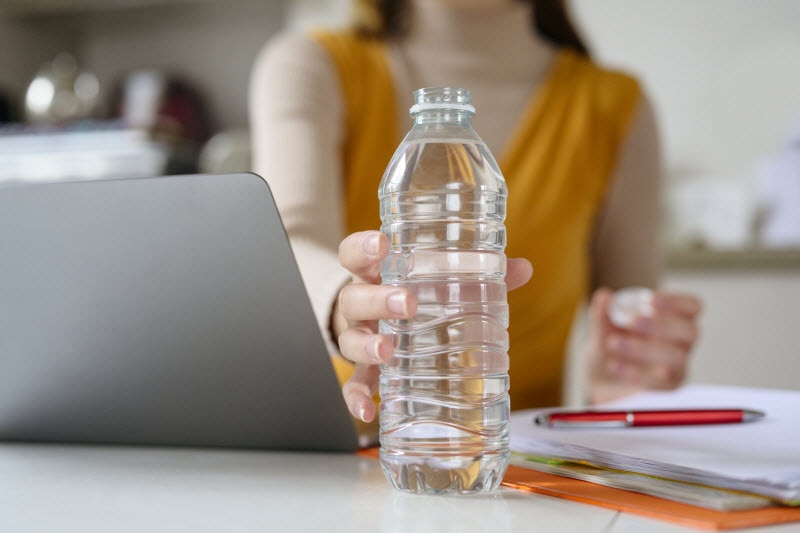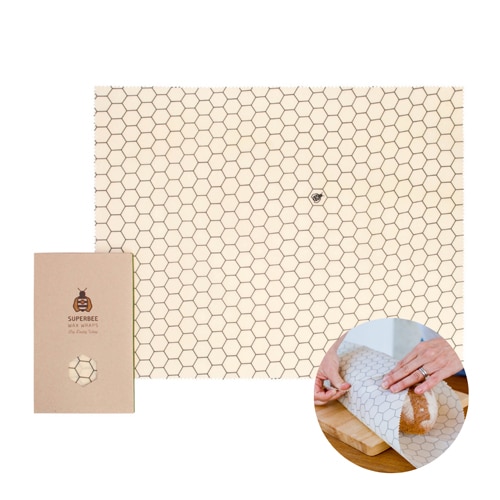[vc_row][vc_column][vc_column_text]Microplastics—tiny particles formed when plastic waste breaks down in the environment—have been found everywhere from oceans to vegetables. Ranging in size from the width of a pencil eraser to many times smaller than a bacterium, microplastics can hitch a ride into your body when you
eat, drink and breathe.
Recent studies on mammals and marine life suggest that these particles may impact the gut barrier and the microbiome. Still, not much is known about how microplastics may affect human health.
How do these tiny particles get into animal and human tissues in the first place? And what does current research reveal about the potential effects of microplastics on gut health?

Microplastics: A Prevalent Problem
Americans generate over
77 million tons of plastic waste every year. Most of it ends up in the environment, where it breaks apart into smaller and smaller pieces that accumulate over time. Rain, snow melt and water runoff transport these particles from land to lakes, rivers and oceans.
Plastic products like food packaging, beverage bottles and fabrics also contribute to microplastic contamination. Simply opening a soda bottle or doing laundry can release plastic particles into the air. Food processing, handling and transport may also transfer microplastics to the food supply.
It's hard to measure how much microplastic the average person eats or inhales, but researchers estimate a range of
39,000 to 74,000 particles per year. People who drink water from plastic bottles may take in an additional 90,000.
Do microplastics affect gut health?
Because microplastics vary in size, shape and chemical content, lab experiments can't accurately emulate human microplastic exposure. Most evidence of the effects of microplastics, including their potential impact on gut health, comes from animal studies.
While it's difficult to draw direct conclusions about microplastics and human health from these studies, the findings can give scientists an idea of what to look for in future research.
Microplastics may alter gut health in animals
An extensive research review published in
Particle and Fibre Toxicology highlighted a range of gut health changes in animals exposed to microplastics, including:
- Diminished digestive enzyme levels
- Damage to the gut lining
- Reduced secretion of the mucus that protects colon walls
- Increased secretion of inflammatory immune compounds
- Shifts in microbiome composition and diversity
- Oxidative damage, which is associated with higher levels of inflammation
Studies in mice show similar effects. The guts of mice exposed to microplastics exhibit changes like:
These results indicate that microplastics may change the gut microbiome and negatively affect gut tissue—at least in animals. But what about people?
Microplastics and human gut health: preliminary evidence
A small study of stool samples published in 2019 suggests that most, if not all, people have microplastics in their bodies. Other studies have found plastic particles in the
blood,
kidneys,
lungs,
heart and
placenta.
But study results on microplastics and gut health in people are inconsistent. A
study of stool samples from a group of Indonesian subjects with low microplastic exposure showed no major gut changes. Preschoolers in China exposed to high levels of microplastics experienced microbiome changes that may correlate with a
higher risk of inflammatory bowel disease. But the microbiomes of children with lower exposure had more anti-inflammatory gut bacteria, including microbes that may protect against IBD.
How to Reduce Your Microplastic Exposure
Researchers agree that more studies are needed to determine if a link exists between microplastics and human gut health. But if you're concerned about microplastics, here's how to reduce your exposure.
1. Use less plastic in the kitchen
Cooking can transfer plastic particles to the air and your food. To minimize microplastics during food prep:
- Replace plastic cutting boards with natural materials like wood
- Use plastic-free dishes, cups and cutlery
- Swap plastic food storage containers for glass
- Install a tap water filter for cooking and drinking water
- Avoid overheating nonstick pans or switch to other materials like stainless steel, copper or cast iron
2. Cut back on household plastic use
Common household items shed microplastics that accumulate in dust. Experts recommend taking these steps to
reduce plastic around the house:
- Vacuum and dust regularly
- Ventilate often, especially after cleaning
- Avoid vinyl shower curtains, window treatments and other décor
- Choose natural fibers for clothing, towels and linens
- Switch to refillable glass containers for body care and cleaning products
3. Switch to a low-plastic diet
For low-plastic shopping and eating:
4. Support your gut with healthy habits
Complement your low-plastic lifestyle with daily habits that promote a strong, healthy gut, including:
Incorporating
supplements for gut health may also be beneficial if you experience occasional digestive discomfort. So far, though, researchers can only speculate about the potential benefits of supplements like
probiotics for addressing the hypothesized effects of microplastics in the human gut.[/vc_column_text][/vc_column][/vc_row][vc_row][vc_column][vc_text_separator title="Featured Products" border_width="2"][vc_row_inner equal_height="yes" content_placement="middle" gap="35"][vc_column_inner width="1/3"][vc_single_image image="172545" img_size="full" alignment="center" onclick="custom_link" img_link_target="_blank" css=".vc_custom_1706505714112{padding-right: 7% !important;padding-left: 7% !important;}" link="https://www.vitacost.com/new-wave-enviro-10-stage-plus-countertop-water-filter"][/vc_column_inner][vc_column_inner width="1/3"][vc_single_image image="172546" img_size="full" alignment="center" onclick="custom_link" img_link_target="_blank" css=".vc_custom_1706505731485{padding-right: 7% !important;padding-left: 7% !important;}" link="https://www.vitacost.com/package-free-laundry-detergent-3-ingredient-powder-unscented"][/vc_column_inner][vc_column_inner width="1/3"][vc_single_image image="172547" img_size="full" alignment="center" onclick="custom_link" img_link_target="_blank" css=".vc_custom_1706505748207{padding-right: 7% !important;padding-left: 7% !important;}" link="https://www.vitacost.com/repurpose-compostable-bowls-16-oz-35-bowls"][/vc_column_inner][/vc_row_inner][/vc_column][/vc_row]




